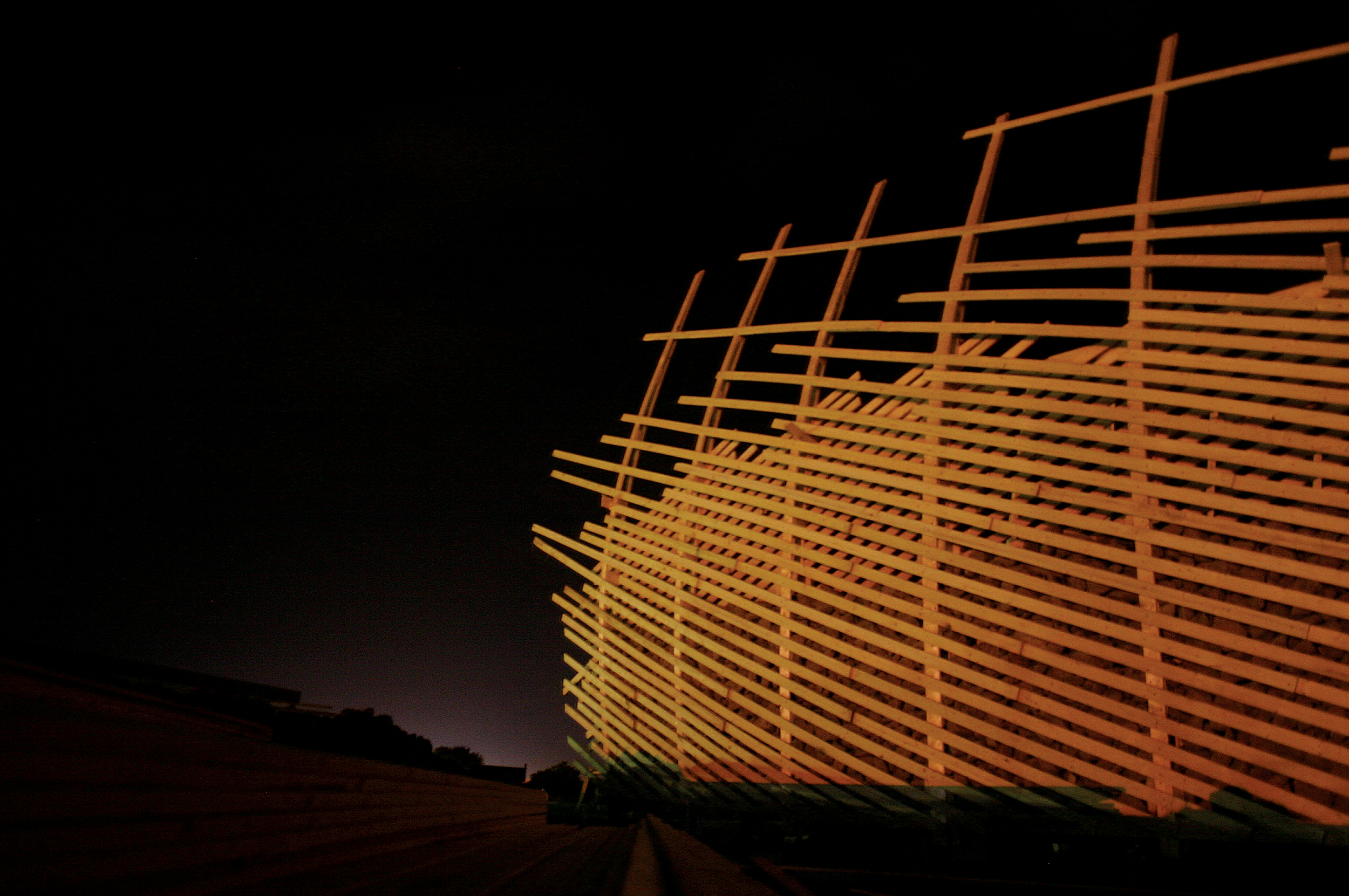
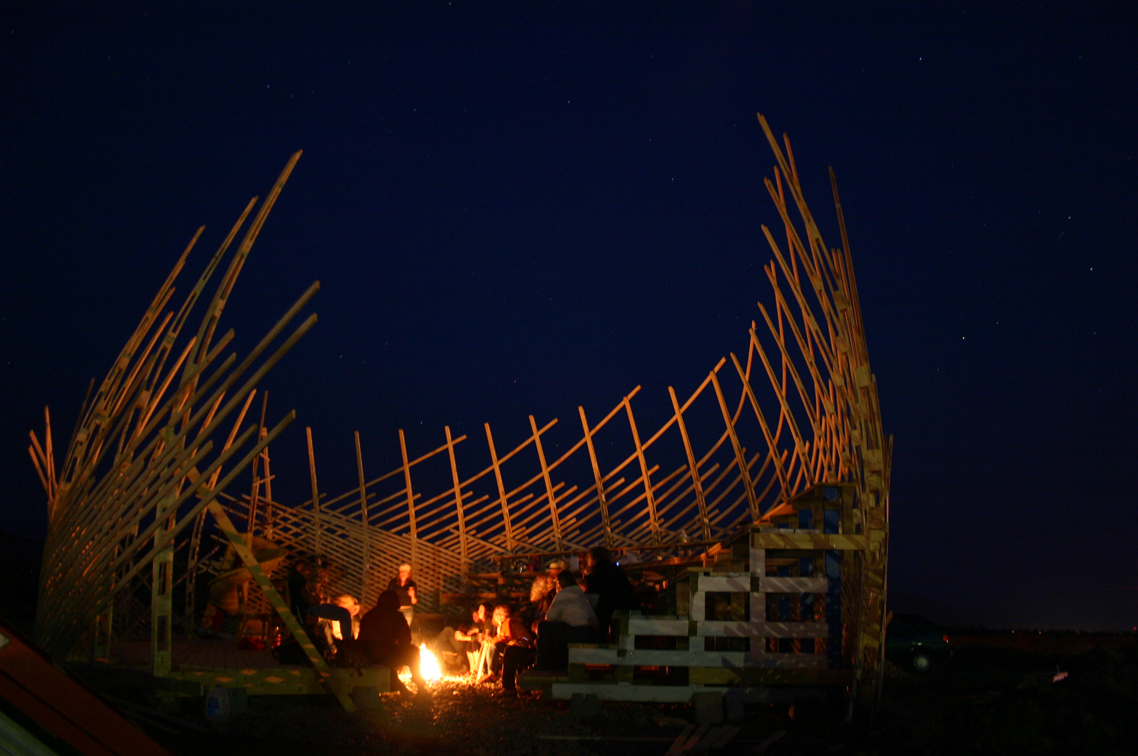
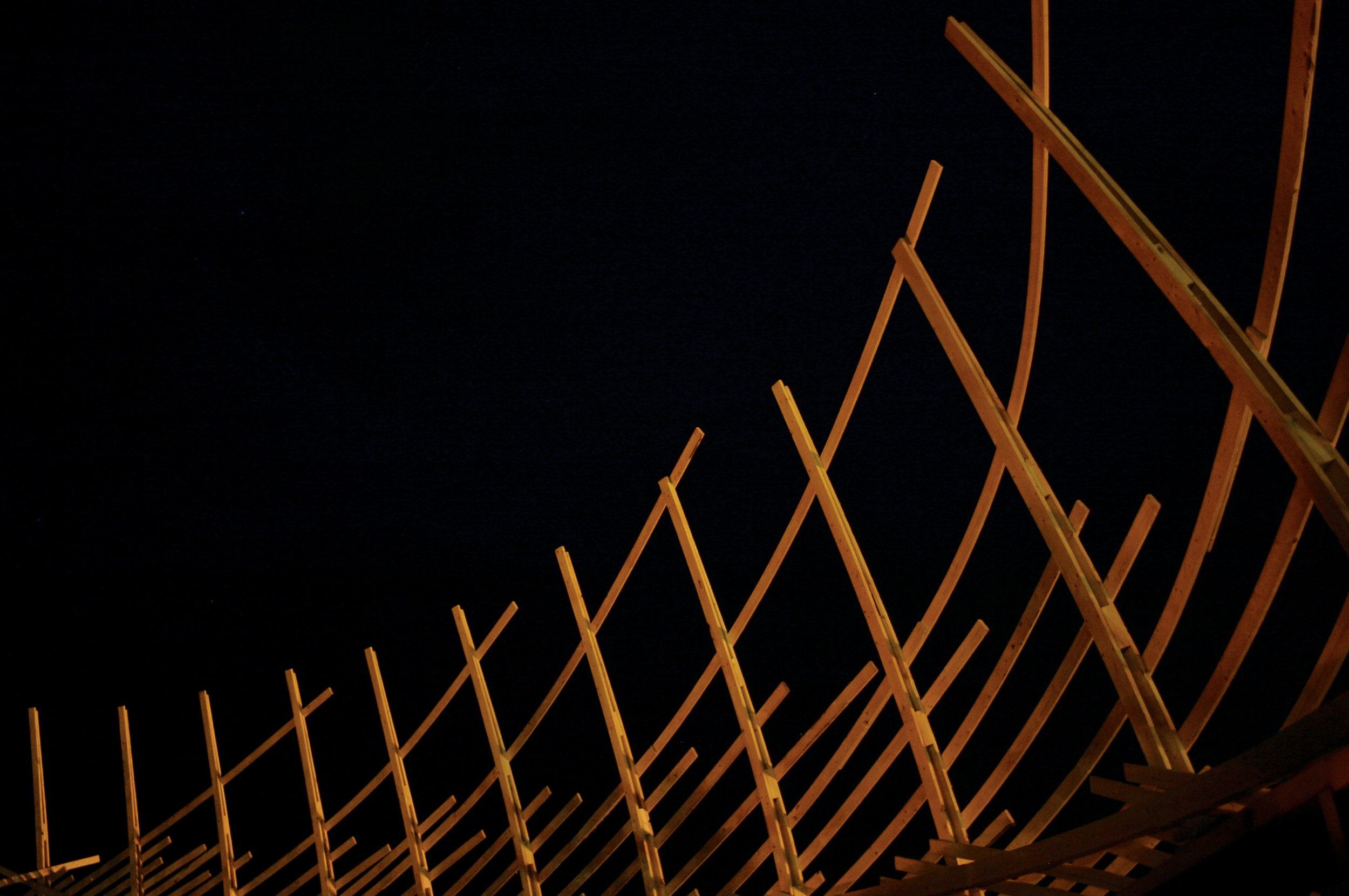
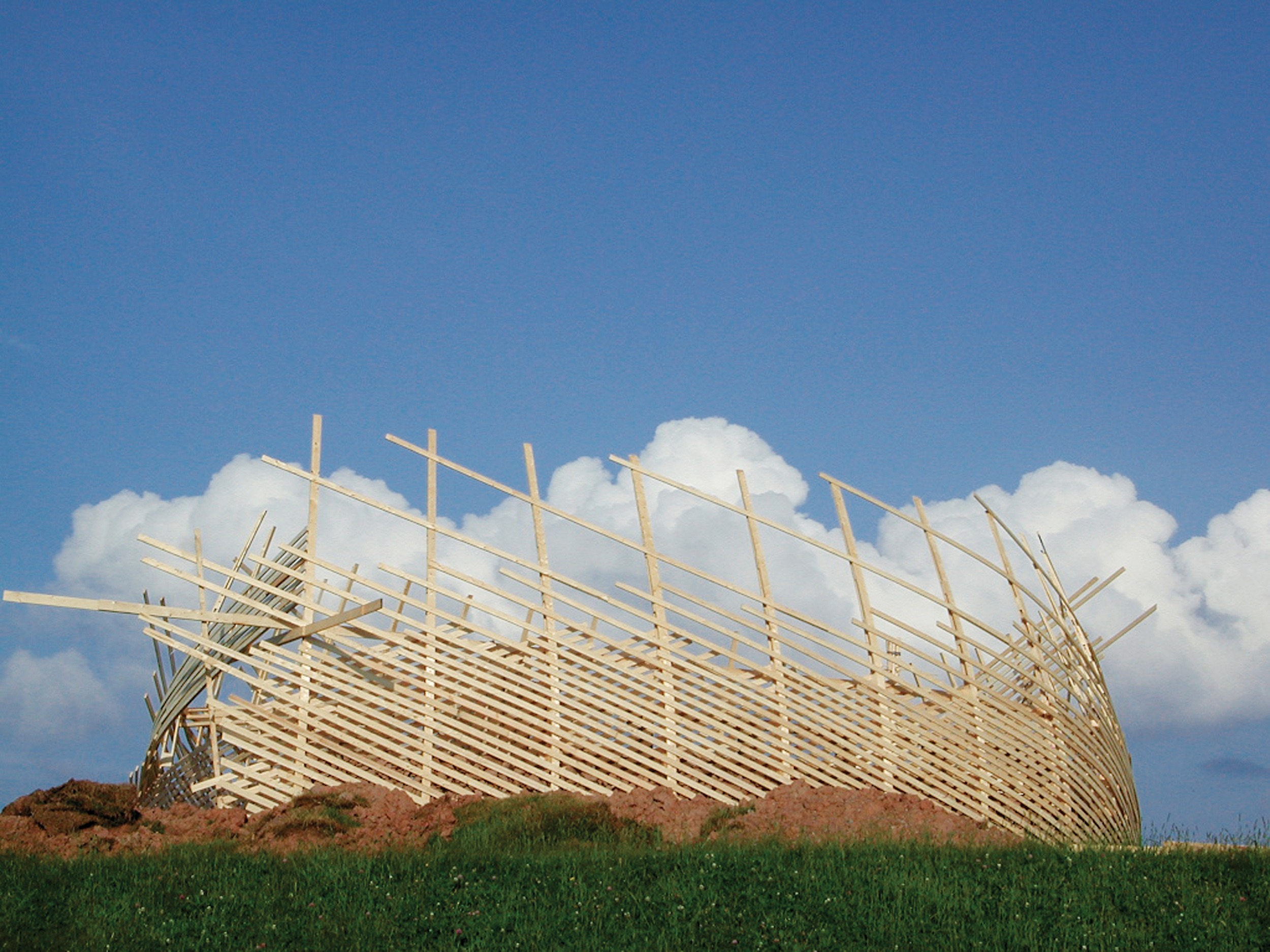
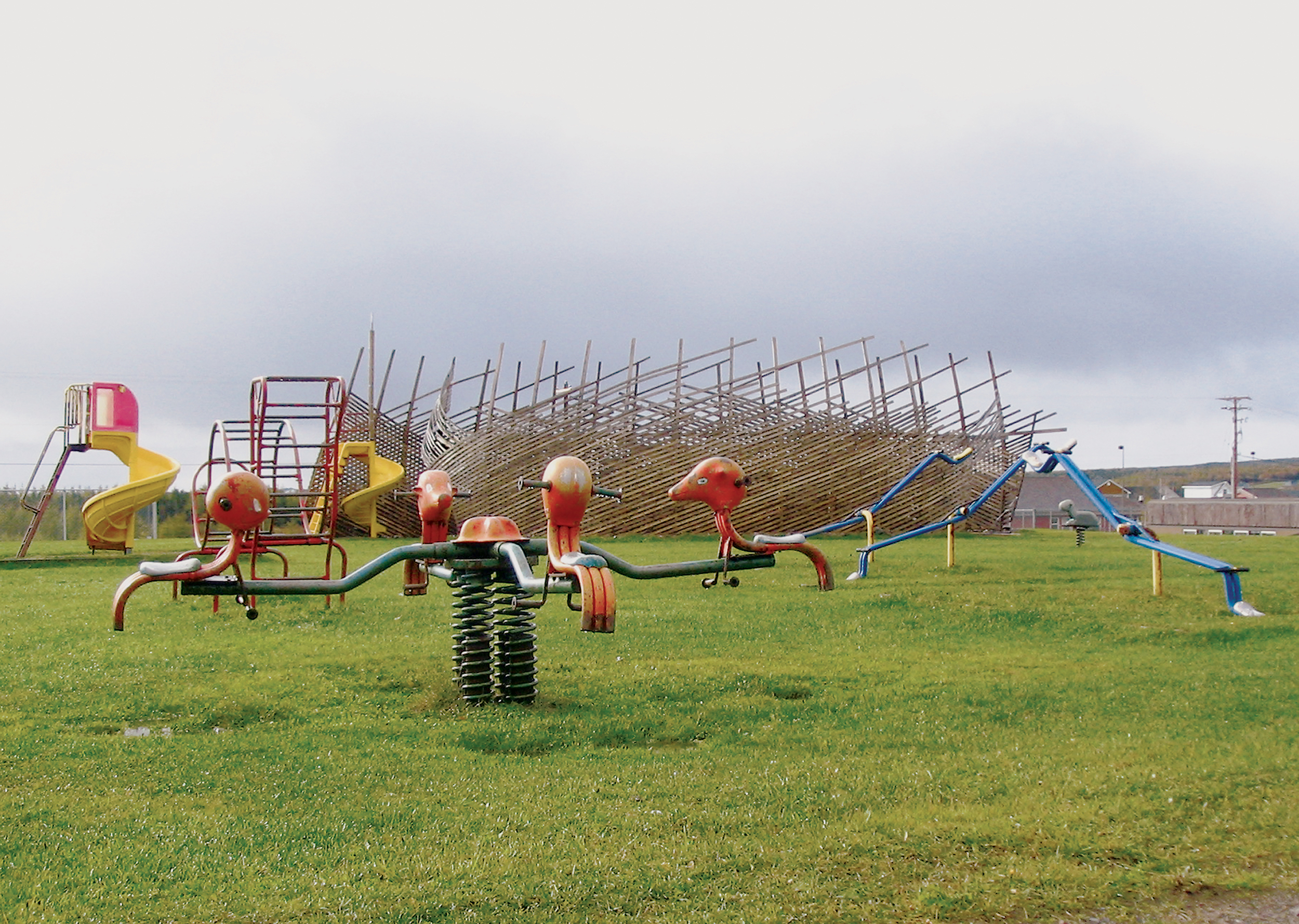
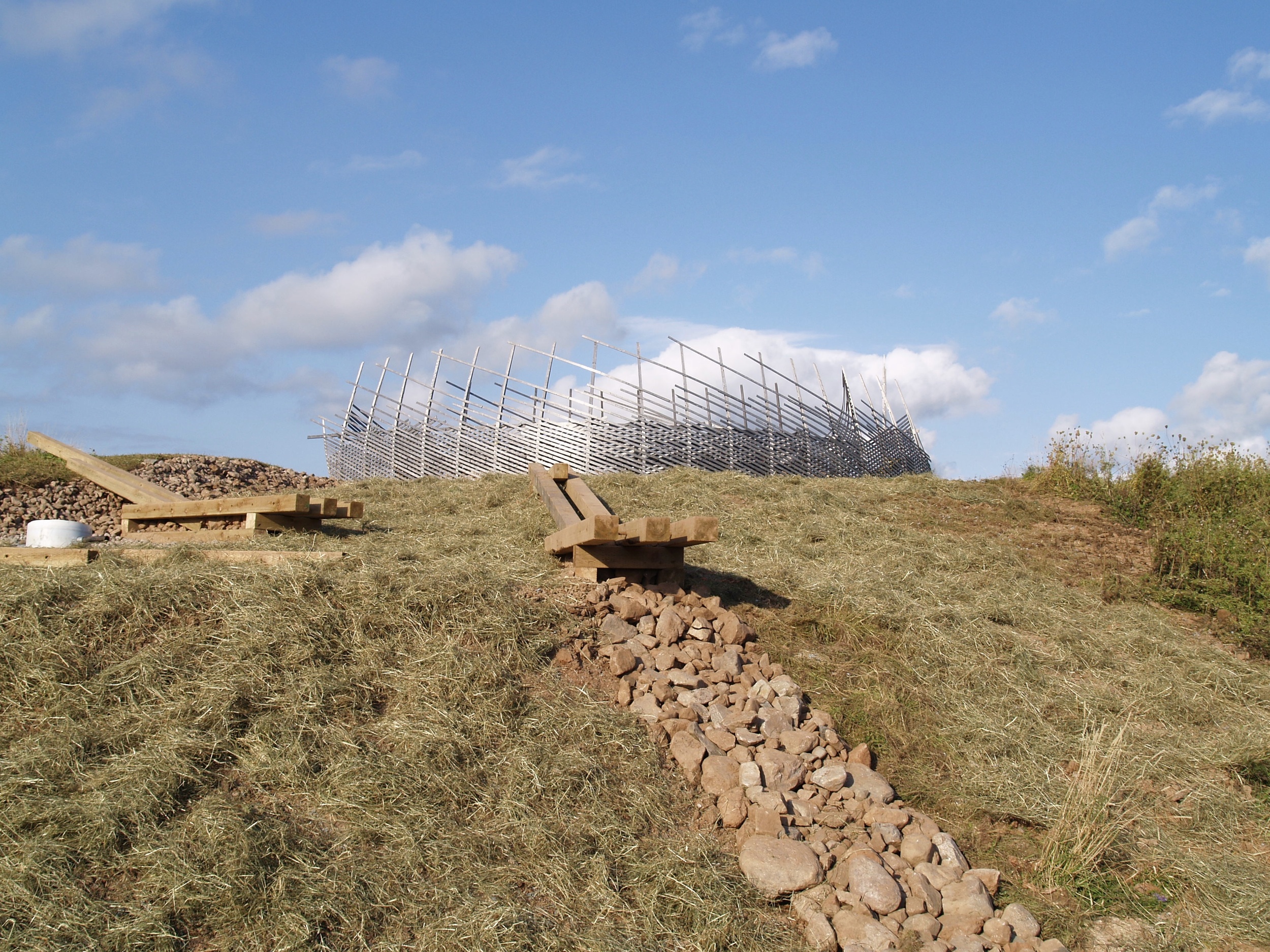
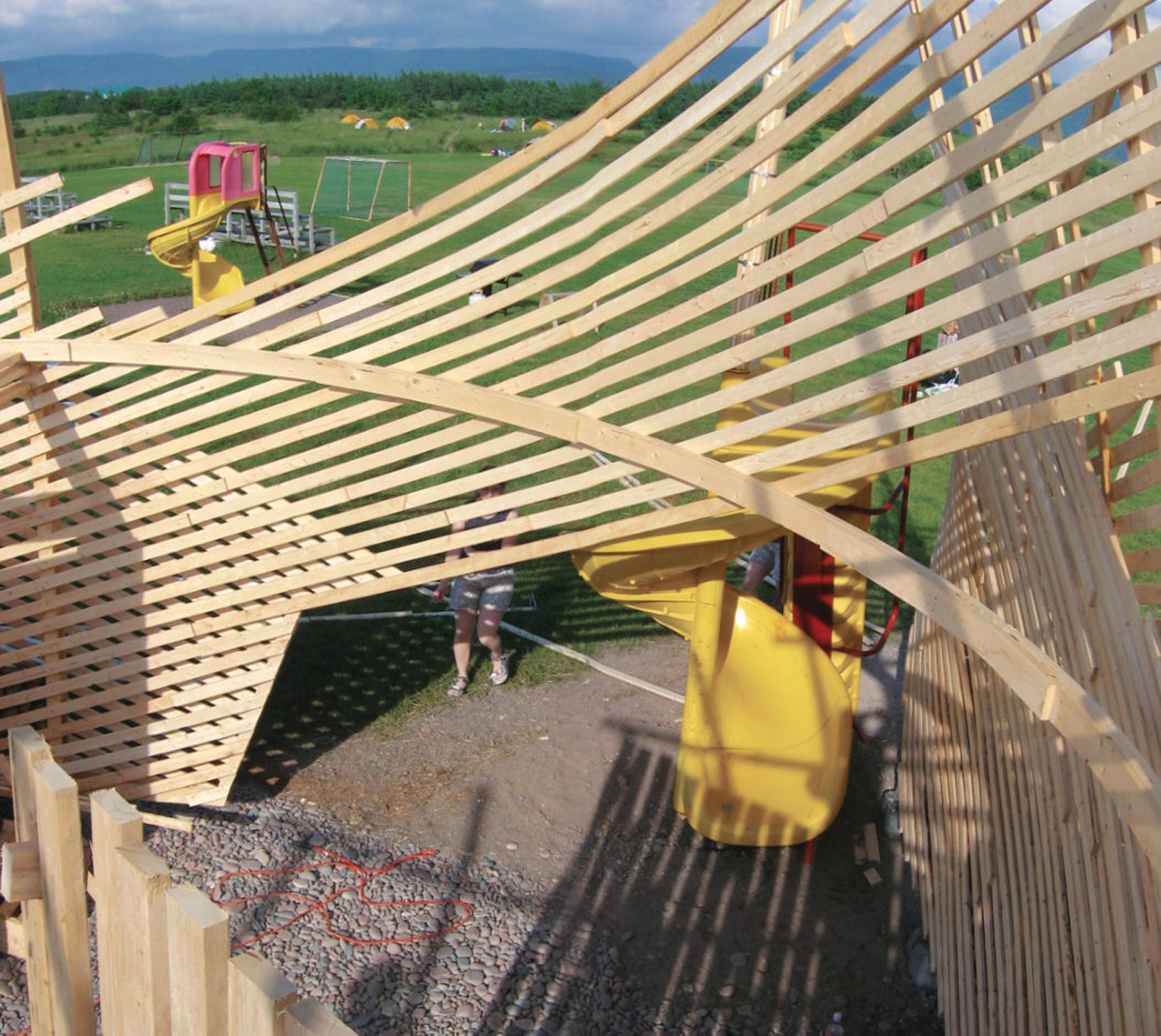

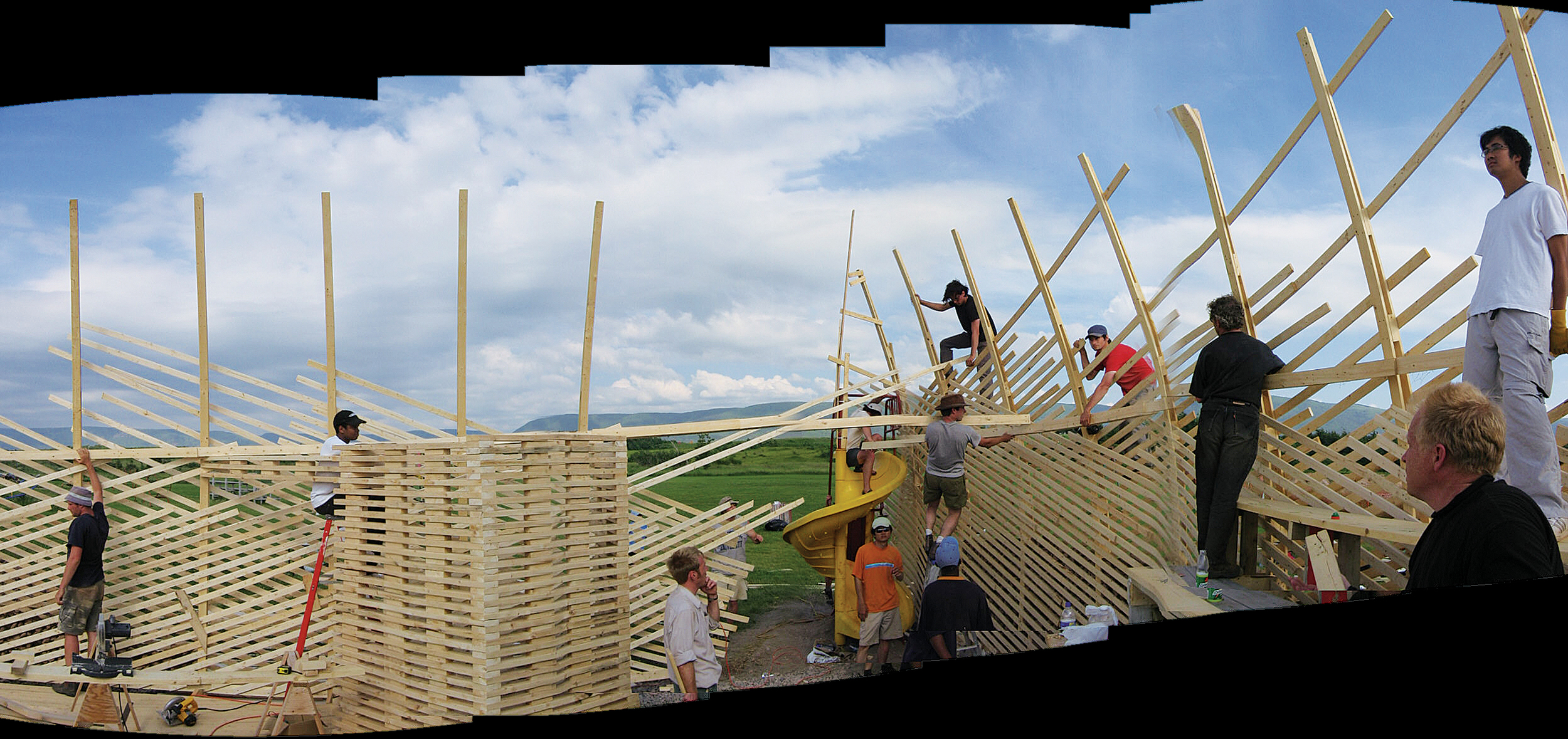
Petit Cercle
Location:
Cheticamp, Nova Scotia
Date:
2004
Team:
Velma Anelo, Derek Brennan, Kingman Brewster, Ted Cavanagh, Katrin Desjardins, Colin Gash, Lynden Giles , Alexander Graf , Deana Hall, Kagiso Jobe , Keemanao Kekobilwe, Richard Kroeker, Mark Lee, Etienne Lemay, Zihuan Lin, Roger Mullin, Colin Merriam, Alden Neufeld, Benno Rottlaender, Weronika Rybacka, Michelle Sparks, Micheal Thicke, Christine Thornton, Robert Toth, Keith Tufts, Mareike Wellers, Vincent Yen
Affiliates:
Le Conseil des Arts de Chéticamp
Awards:
Lieutenant Governor General of Nova Scotia Masterwork Arts Award
Associate Collegiate Schools of Architecture’s Best Collaborative Practice Award
The Design Exchange and the National Post’s Gold Award for Best Public Commercial Building in Canada
Description:
“Le Théâtre Petit Cercle playfully engages the infamous Suette winds of Cheticamp in this community project moored to a playground slide. In 2004, the French-speaking town celebrated 400 years of European settlement in Canada by hosting an international festival. This permanent outdoor theatre for children’s festival events has become the seed for a future arts camp to promote Acadian culture and local ways of building.
Beginning with a surrealistic, derelict playground, instructors and students learned lessons from local construction, building rock-ballasted wooden cribwork walls “transparent to the wind.” The playground slide with windsock banner anchors the structure at a child-height entry, and suggests making an exciting, sliding “grand entry.” The walls are woven onto vertical ribs made from one-by-fours laminated each side of tapered blocking. One-by-three slats are set diagonally, screwed onto the inside and outside of the ribs creating a “cavity” partly filled with rock to ballast the structure during a Suette. Like boat hulls or baskets, the three dimensional curvature creates stiffness with relatively thin material.
In fifteen days, the theatre was designed, built and nearly paid for. Now, an additional $300,000 has been raised to complete the rest of the theatre camp, building on community spirit and a sense of place.”
